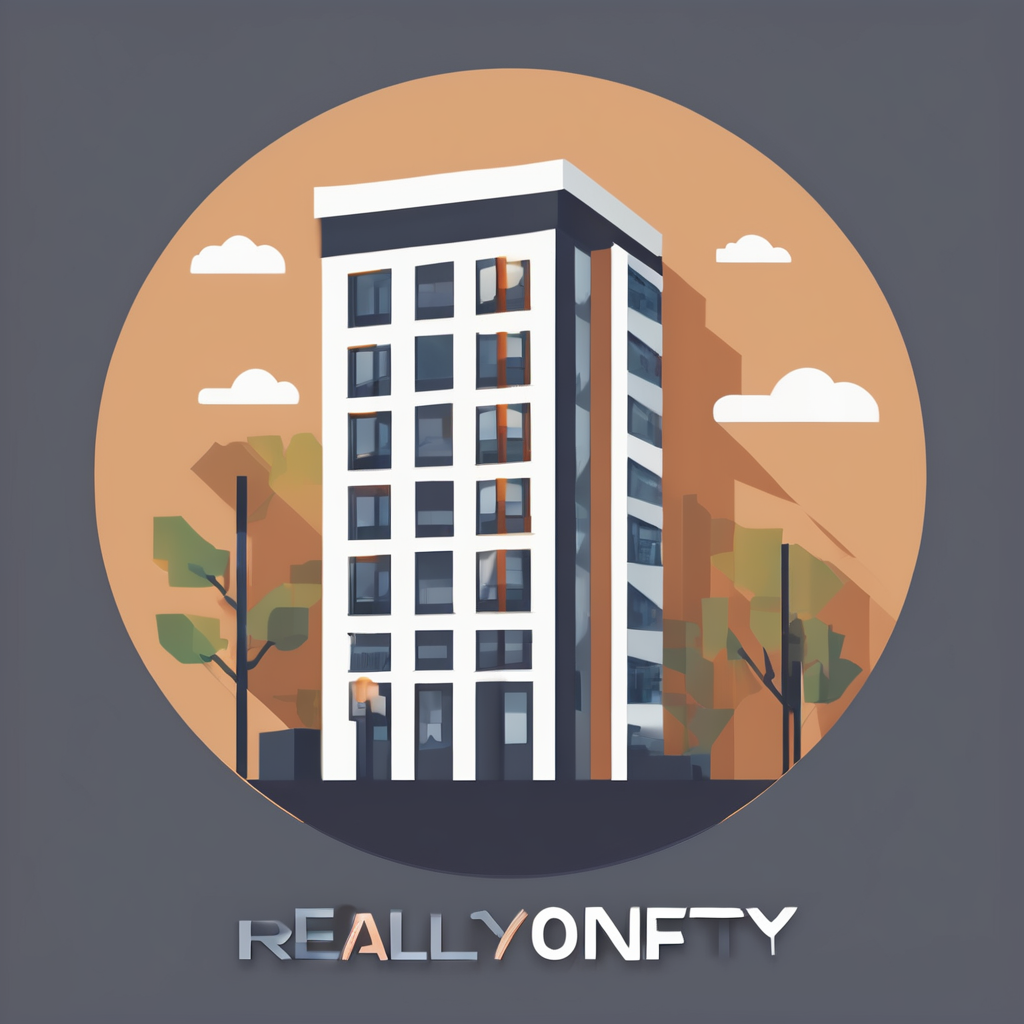In Liverpool's competitive real estate market, standing out is essential for agents. Virtual reality (VR) transforms property listings by creating immersive experiences that captivate potential buyers. Instead of static images, clients can explore properties from anywhere, enhancing engagement and interest. This innovation not only streamlines viewings but also showcases properties in their best light. Discover how incorporating VR technology can elevate your listings and revolutionize your real estate strategy.
Overview of Virtual Reality in Real Estate
Virtual Reality (VR) has revolutionized real estate marketing by transforming how properties are showcased and experienced. Initially developed for gaming and entertainment, VR technology has evolved significantly, finding its way into various industries, including real estate. This advancement allows potential buyers to explore properties from the comfort of their homes, offering a three-dimensional, immersive experience that traditional photos and videos cannot provide.
A découvrir également : Unlocking Property Value: How Rural Welsh Owners Can Harness Geothermal Heating for a Competitive Edge
In the current real estate landscape, VR is becoming an indispensable tool. Property technology, or proptech, leverages VR to create virtual tours, enabling prospective buyers to navigate through properties as if they were physically present. This trend is not only convenient but also expands the market reach by attracting international buyers who can view properties without the need to travel.
The importance of VR in real estate marketing lies in its ability to enhance property visibility and engagement. By offering a comprehensive view of a property, VR helps potential buyers make informed decisions, increasing their confidence and interest. As a result, real estate agents and developers are increasingly adopting VR to stay competitive and meet the growing demand for innovative, technology-driven solutions in property sales.
A voir aussi : Unlocking Opportunities: How a Weak Pound Sterling Can Still Favor UK Property Investors
Virtual Reality Applications in Property Listings
Virtual reality (VR) has become a game-changer in the realm of property showcases, offering immersive 3D tours that redefine how potential buyers interact with real estate listings. These 3D tours allow users to virtually walk through a property, providing a realistic sense of space and layout without being physically present. This is particularly effective in capturing the attention of potential buyers, as it offers a detailed and engaging experience that static images cannot match.
One of the most significant advantages of VR is its ability to facilitate remote property viewing. Buyers can explore properties from anywhere in the world, breaking geographical barriers and broadening the market for sellers. This is especially beneficial for international buyers who wish to view multiple properties without the need for extensive travel.
VR is also being integrated with traditional marketing strategies to enhance their effectiveness. By combining VR with conventional methods like brochures and online listings, real estate professionals can offer a more comprehensive marketing package. This integration not only attracts tech-savvy buyers but also appeals to those who appreciate a more traditional approach, thus expanding the potential buyer pool.
Case Studies of Successful VR Implementations in Liverpool
In the thriving Liverpool real estate market, several agencies have embraced VR technology to enhance property sales and client engagement. These VR case studies demonstrate the transformative impact of virtual tours on property transactions.
Local agencies, such as Liverpool Property Group, have integrated VR into their marketing strategies, showcasing properties with immersive 3D tours. This approach has not only attracted a broader audience but also led to a significant increase in successful sales. For instance, a waterfront property that had been on the market for months was sold within weeks after a VR tour was introduced, illustrating the technology's effectiveness.
Testimonials from both agents and clients underscore the benefits of VR experiences. Agents report higher engagement levels and quicker decision-making processes from clients who utilise VR tours. Clients, on the other hand, appreciate the convenience and detailed property insights provided by these virtual experiences. One client noted, "The VR tour gave me a true sense of the property layout and helped me make a confident decision without multiple visits."
These success stories highlight VR's potential to revolutionize property marketing, making it an invaluable tool in the competitive Liverpool real estate landscape.
Benefits of Virtual Reality for Real Estate Agents
Virtual Reality (VR) offers numerous benefits for real estate agents, enhancing their ability to engage clients effectively. One of the primary advantages is the enhanced client engagement and satisfaction. VR allows agents to provide a more interactive and immersive experience, enabling clients to explore properties in detail from the comfort of their homes. This not only captivates clients but also builds trust, as they feel more informed and confident in their decision-making process.
The time-saving aspects of VR are significant for both agents and clients. By offering virtual tours, agents can reduce the need for multiple physical showings, saving time and resources. Clients can view numerous properties in a short period, narrowing down their choices before visiting in person. This efficiency streamlines the buying process, making it more convenient for everyone involved.
In a crowded real estate market, VR provides a competitive advantage. By adopting this technology, agents can differentiate themselves from competitors, attracting tech-savvy clients who value innovation. This edge not only helps in retaining existing clients but also in expanding their client base, ultimately leading to increased sales and success in the industry.
Benefits of Virtual Reality for Buyers and Sellers
Virtual Reality (VR) offers substantial VR benefits for both buyers and sellers in the real estate market. For buyers, VR enhances the buyer experience by providing immersive and detailed property tours. This allows potential buyers to make more informed decisions, as they can explore the layout and features of a property thoroughly without being physically present. The ability to experience a property virtually helps buyers feel more confident in their choices, ultimately leading to quicker decision-making.
For sellers, VR significantly boosts property visibility, reaching a broader audience than traditional methods. By showcasing properties through virtual tours, sellers can attract more interest and differentiate their listings in a competitive market. This increased visibility is particularly advantageous for sellers looking to appeal to international buyers, who can view properties from anywhere in the world.
Additionally, VR is a cost-effective tool in property marketing. It reduces the need for frequent in-person showings, saving time and resources for both parties. By integrating VR into their marketing strategies, sellers can enhance their property's appeal while maintaining a budget-friendly approach, making it a valuable asset in modern real estate transactions.
Strategies for Integrating VR into Property Listings
To effectively incorporate VR integration into real estate listings, it's crucial to adopt well-considered real estate strategies. Selecting the appropriate VR technology and platforms is the first step. This involves assessing various VR solutions to identify those that best meet the needs of your target audience and budget. Whether opting for high-end VR headsets or more accessible options like 360-degree videos, the chosen technology should enhance the property viewing experience.
Collaborating with VR production companies is another key strategy. These companies specialize in creating immersive and engaging virtual tours, ensuring high-quality content that captivates potential buyers. By partnering with experienced professionals, real estate agents can leverage their expertise to produce compelling VR experiences that stand out in the market.
Developing a comprehensive marketing plan that integrates VR is essential. This plan should outline how VR will be used alongside traditional marketing techniques to maximize property exposure. By promoting VR tours through social media, online listings, and real estate websites, agents can reach a wider audience. Tailoring marketing efforts to highlight the unique benefits of VR, such as remote viewing and detailed property exploration, will further enhance the overall strategy's effectiveness.
Practical Tips for Creating Immersive Property Experiences
Creating immersive experiences in real estate involves more than just filming properties; it's about crafting a narrative that captivates potential buyers. Here are some essential VR tips to elevate your property showings:
-
Best Practices for Filming: When filming for VR, focus on capturing the property's unique features. Use wide-angle lenses to provide a comprehensive view and ensure the camera is stable to avoid disorienting viewers. Lighting is crucial; natural light can enhance the property's appeal, but don't hesitate to use additional lighting for darker areas.
-
Storytelling: Incorporate storytelling to make the virtual tour engaging. Highlight the property's history, unique architectural details, and potential lifestyle benefits. This narrative approach helps buyers envision themselves living in the space, making the experience more personal and memorable.
-
High-Quality Visuals and Audio: Maintaining high-quality visuals is paramount. Ensure that the images are sharp and the colours are true-to-life. Equally important is the audio; clear and concise narration can guide viewers through the property, while ambient sounds can enhance the realism of the tour.
These strategies ensure that your VR property showings are not only informative but also compelling and memorable.
Overcoming Challenges in Adopting Virtual Reality
Adopting Virtual Reality (VR) in real estate can present several VR challenges, but understanding and addressing these adoption barriers is crucial for successful implementation. One common misconception about VR is that it's overly complicated or expensive, deterring some from exploring its benefits. However, with the right approach, these concerns can be mitigated.
Technical barriers are another hurdle, often involving integration with existing systems and ensuring compatibility with various VR platforms. Overcoming these requires selecting adaptable VR solutions that can seamlessly integrate with current technologies. Real estate agencies should invest in scalable VR tools that offer flexibility and ease of use.
Training agents and staff to effectively use VR tools is essential in overcoming adoption barriers. Providing comprehensive training programs ensures that personnel are confident in utilizing VR technology to its full potential. This includes familiarizing them with VR equipment, software, and the unique selling points of virtual tours.
By addressing these challenges head-on, real estate professionals can harness the power of VR to enhance their marketing strategies, ultimately leading to greater client satisfaction and increased sales.
Future Outlook for Virtual Reality in Liverpool Real Estate
The future of VR in Liverpool's real estate sector is poised for exciting developments, with predicted advancements set to transform the industry. As VR technology continues to evolve, it will likely introduce more sophisticated real estate innovations. These innovations might include enhanced virtual tours with augmented reality features, allowing potential buyers to visualize renovations or furniture placement within a property.
Market trends suggest that VR's application will extend beyond residential sales. Commercial real estate can benefit significantly from VR, providing virtual walkthroughs of office spaces or retail locations. This can streamline leasing processes and attract international investors, expanding Liverpool's market reach.
The long-term benefits of adopting VR are substantial. By staying ahead of these market trends, real estate professionals can ensure ongoing success. VR not only enhances client engagement but also offers a sustainable solution for showcasing properties. This technology reduces the need for physical visits, cutting down on carbon footprints and aligning with environmentally conscious practices.
In summary, the integration of VR into Liverpool's real estate market holds promising potential, offering innovative solutions and ensuring the industry remains competitive and forward-thinking.











